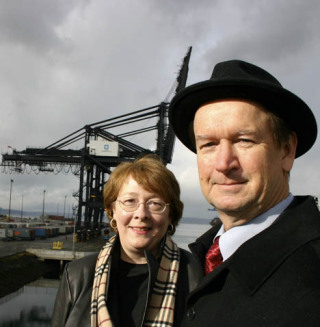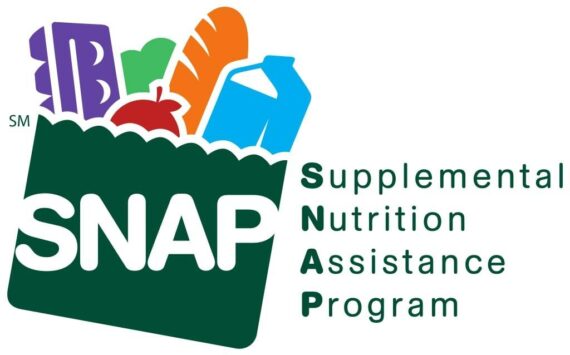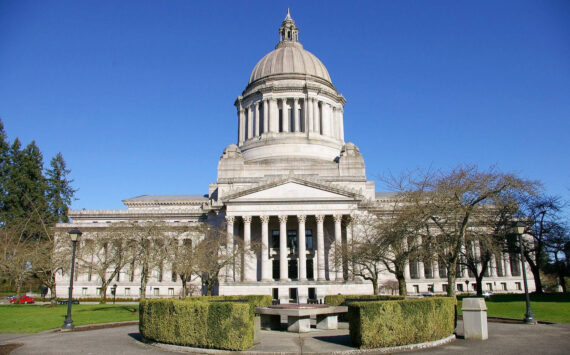Pick any major port in the United States, and its history probably includes a separate citizens group that watches its every move.
The Port Observer watches the Port of Seattle.
Olympians for Public Accountability watches the Port of Olympia.
And a local chapter of the League of Women’s Voters, to some extent, has kept an eye on the Port of Tacoma.
But a group formed last summer aims to raise the awareness of issues and decision-making at the Port of the Tacoma.
Whatever you do, however, don’t call ‘Friends of the Port’ a watchdog group.
“I take exception to being called a ‘watchdog group,'” says co-founder Dick Dorsett. “We could have called it ‘Port Watch,’ but it sets up a set of adversarial presumptions. That’s not the point. Our point is to have a dialogue and conversation, and at times be critical, supportive, and collaborative.”
Friends of the Port arrives at a time of impressive expansion on the tideflats. According to port data, the Port of Tacoma’s cargo volume has grown annually from 1.5 million TEUs in 2002 to 2.1 million TEUs in 2006. It ended 2007 with $97.6 million in operating revenue (a 6.3 percent increase from 2006). And it recently kicked off a five-year, $953.6 million Capital Improvement Program (one highlight: development of a 168-acre container terminal for Yusen Terminal Tacoma Inc., a subsidiary of NYK Line.
While Dorsett and co-founder Ronnie Bush say they applaud the port’s success, they are also concerned over the impact that growth will have on the region.
“The bottom-line question that keeps coming to me when I’m asked by port staff, ‘What makes you do this?’ is the one-word answer — ‘legacy,'” says Bush. “A legacy that will come through growth with responsibility. I’m a mom, I have three kids, and I’m going to be retired in this area. When we hear that [port business] is going to get two, three, four times better, and the port equates that with so many more jobs, my stomach goes crunch. How much is that going to affect our air quality, and quality of life?”
It also arrives at a time when local ports are starting to receive scrutiny in light of recent events in Seattle. In December, Washington State Auditor Brian Sonntag issued a report claiming the Port of Seattle wasted $97 million in taxpayers money. The U.S. Justice Department has launched a criminal investigation to see if the port was fraudulent.
FRIENDS OF THE PORT appears to have had some impact already. Last summer, the group pushed for more visibility at commission meetings, in the form of televised Web streaming on the port’s Web site. Bush says it was an important first step. “It was an issue because . . . it was the only clear answer in starting to get people in Pierce County and the Tacoma area to be able to understand what’s going on at the port,” she says.
In December, commissioners approved a contract with a software company to provide technology to begin broadcasting commission meetings live via the Port’s Web site. That service is expected to begin in March, according to port spokesman Mike Wasem. The port will also digitally archive those meetings, and even link pertinent video to specific agenda items, similar to services offered by the City of Olympia and the Port of Long Beach. And the port recently changed its meeting time from 4:00 p.m. Thursdays to 12:00 p.m., to see if a mid-day meeting would draw more people.
Similarly, this month the port commission adopted a resolution designed to formalize public comment procedures during commission meetings, and increase the exchange of public information between citizens and the port.
Commissioner Connie Bacon says the port has always tried to operate with transparency in mind. “I think the motivation of the commission has always been to give as much information as possible, as often as possible, and as complete as possible,” says Bacon, who was elected to the commission in 1997. She notes that meetings and study sessions have always been open to the public, and the port has provided ample information through its Web site and annual reports.
When Friends of the Port pushed for televised meetings, Bacon says the commission listened. “When we were asked to give additional information, pointing to the fact that people felt they weren’t getting enough, we responded to that,” she adds.
Commission meetings and study sessions have always been open to the public. But they don’t receive the attraction or attendance of, say, a typical City Council meeting.
“The activities of the port aren’t activities that touch you where you live everyday,” says Commissioner Clare Petrich. “They aren’t about the sidewalk in front of your house. They aren’t about fixing the road you have to drive down. Governance of cities is very different than governance of ports.”
Citizen interest fluctuates depending upon the issue. For example, a public meeting hosted by the ports of Tacoma and Olympia will be held in Lacey tonight, and will explore four sites in Thurston County for a proposed rail cargo logistics center. One site is proposed to be built on land in Maytown, and purchased by the Port of Tacoma for $22 million two years ago. The issue has drawn the attention of Friends of the Port, who wonder why the port spent $22 million on land in Thurston County, and Friends of Rocky Prairie, another citizens group, which is concerned increased truck traffic will negatively impact their small town.
Commissioner Bacon says she welcomes Friends of the Port, but does not entirely understand its motivation to form. She also says she has asked to be included on the group’s e-mail list, but still hasn’t received any of its notices. “I don’t see them as adversarial,” says Bacon. “I see them as interested. But I would be interested in the catalyst that engendered their interest. Why now? I guess my question to both of them would be, ‘What is it exactly that piqued your interest? Was there a catalyst? Was it something the port did or didn’t do?'”
“I think it’s always good to have a citizens group active and interested in the port’s work and its organization, and I welcome that,” says Commissioner Petrich. “Certainly on my part, there’s no resistance to the issues [Friends of the Port] have been brought up.
“It’s important for us on the port commission to be transparent in everything we do,” she adds. “Friends of the Port, in some cases their approaches have appeared to be adversarial, but I believe and hope they have best interests of the community at heart.”
DORSETT AND BUSH say the port has mostly done a good job as its has tried to wrestle with customer demand and the need to grow its operation. But they want to see more public involvement in the port’s decision-making process.
“I think, in general, the Port makes good business decisions,” says Dorsett, a veteran public relations person who worked as the port’s governmental affairs manager for nearly two years, beginning in 2004. “It is a vital job creator. But the decision-making process sure looks like it’s occurring behind closed doors. I’m talking about policy decisions.
Where do the deliberations occur? You’re taking one of the prime assets in Pierce County, it is tax-payer supported county-wide, and you are making decisions that have a bearing on traffic congestion on I-5, on environmental impacts of more ships coming in.”
Dorsett’s involvement — a former port employee who has co-founded a citizens group focusing on the port — raises a couple questions.
Is he a disgruntled former employee?
“I’ve heard some people say that,” he replies. “I have always liked the Port of Tacoma, and I thoroughly enjoyed representing the port, and continue to be interested in what the port does. This was a way for me to stay engaged in what was going on. As far as sour grapes? No.”
Does he plan to run for a seat on the port commission?
“Possibly,” says Dorsett. “It’s certainly something that would be considered.”
But Dorsett insists the group is more about raising awareness of the port’s decision-making process than his own goals.
“I think it’s far better to have this approach of a group that is interested in the port, and is generally supportive, but asking critical questions,” he says. “It is really a good thing for the port. The worst thing would be that nobody formed anything, three years go by, and something happens like at the Port of Seattle. I think you would have a firefight going on. The press would be on it. It would be a mess. I think [Friends of the Port] is a healthy thing. I think it’s going to help the port.”
For more information about Friends of the Port, e-mail friendsoftheport@gmail.com


Todd Matthews is editor of the Tacoma Daily Index and recipient of an award for Outstanding Achievement in Media from the Washington State Department of Archaeology and Historic Preservation for his work covering historic preservation in Tacoma and Pierce County. He has earned four awards from the Society of Professional Journalists, including third-place honors for his feature article about the University of Washington’s Innocence Project; first-place honors for his feature article about Seattle’s bike messengers; third-place honors for his feature interview with Prison Legal News founder Paul Wright; and second-place honors for his feature article about whistle-blowers in Washington State. His work has also appeared in All About Jazz, City Arts Tacoma, Earshot Jazz, Homeland Security Today, Jazz Steps, Journal of the San Juans, Lynnwood-Mountlake Terrace Enterprise, Prison Legal News, Rain Taxi, Real Change, Seattle Business Monthly, Seattle magazine, Tablet, Washington CEO, Washington Law & Politics, and Washington Free Press. He is a graduate of the University of Washington and holds a bachelor’s degree in communications. His journalism is collected online at wahmee.com.








